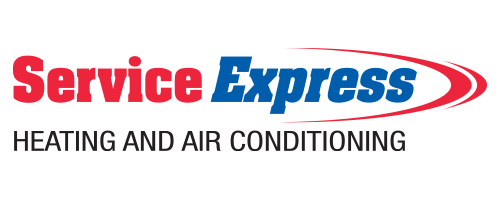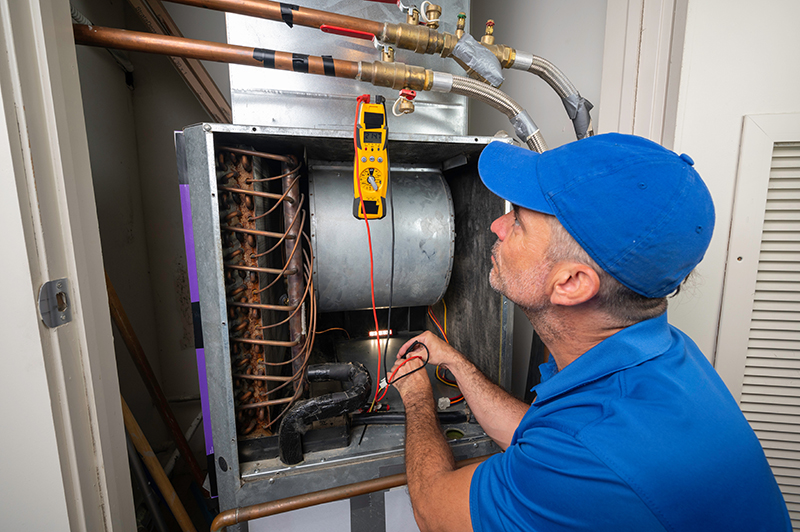Most people spend a lot of time indoors. We need the air we breathe to be clean. But could an old HVAC system cause indoor air quality issues?
Indoor air quality (IAQ) plays a significant role in our health and well-being. According to the EPA, indoor pollution is the main cause of poor IAQ. These can lead to various health issues like respiratory diseases and heart disease. With most people spending a lot of time indoors, it is crucial to ensure that the air we breathe is clean.
How an Old HVAC System Affects Indoor Air Quality
One factor that can contribute to poor indoor air quality is an aging HVAC system. HVAC systems provide temperature control, help maintain proper ventilation, and filter out pollutants. Over time, these systems can become less efficient, leading to a decline in indoor air quality. Older HVAC systems may struggle to provide adequate ventilation. This can lead to stagnant air and a buildup of pollutants indoors. Proper ventilation removes stale air and adds fresh outdoor air into your home. It ensures a healthier environment.
As HVAC systems age, their filters can become clogged. They’re less effective at trapping dust, pollen, mold spores, and pet dander. This can result in increased allergens and decreased air quality. This is more impactful for individuals with respiratory conditions or allergies. Older HVAC systems are less energy-efficient, requiring more power to heat or cool. As a result, they may not filter and circulate air. These dirty filters allow pollutants to remain in your home for longer periods.
When to Replace Your Old HVAC System
You need to recognize the signs that your old HVAC system may be compromising indoor air quality. When this happens, you need to consider replacing it with a more efficient and reliable system. If your HVAC system requires a lot of repairs and maintenance, it may be a sign that its components are wearing out. Continued operation of an unreliable system can contribute to poor indoor air quality. This has the potential to lead to further health issues.
Have you noticed that there are significant temperature variations throughout your home? It could be a sign that your HVAC system is struggling to distribute conditioned air. This imbalance can affect airflow and air quality. Aging HVAC systems often consume more energy to achieve the desired temperature. This can result in increased utility bills. Upgrading to an energy-efficient system can improve air quality and lower energy costs. On average, HVAC systems have a lifespan of 10-15 years. If your system falls within this range or exceeds it, it may be time to consider a replacement.
Improving Indoor Air Quality with Proper HVAC Maintenance and Upgrades
Regular maintenance and timely upgrades are essential for preserving good indoor air quality. Here are some steps you can take.
- Schedule Professional Maintenance. Arrange regular inspections and maintenance visits by a qualified HVAC technician. They can find issues, clean or replace filters, and ensure that your system is efficient.
- Upgrade to High-Efficiency Filters. Consider using high-efficiency air filters, such as HEPA (High-Efficiency Particulate Air) filters. They capture smaller particles and improve air quality by reducing allergens and pollutants.
- Install a Whole-House Air Purification System. Add a whole-house air purification system to your HVAC system. This system can further enhance indoor air quality. They can remove contaminants, odors, and harmful particles from the air in your home.
- Invest in Energy-Efficient HVAC Systems. When it’s time for a replacement, opt for energy-efficient HVAC systems. They provide better temperature control and contribute to improved air quality. Plus, these systems help with lowering energy consumption.
Contact Us
Maintaining good indoor air quality is an ongoing effort. It requires attention to both your HVAC system and other factors. You need to ensure proper ventilation as well as regular cleaning and maintenance. Indoor air quality is a vital part of your HVAC system. But an old HVAC system can impact indoor air quality. By being proactive, you can create a healthier living environment for you and your loved ones. If you need help with your home’s indoor air quality, contact us. We are here to help with all your HVAC needs.

